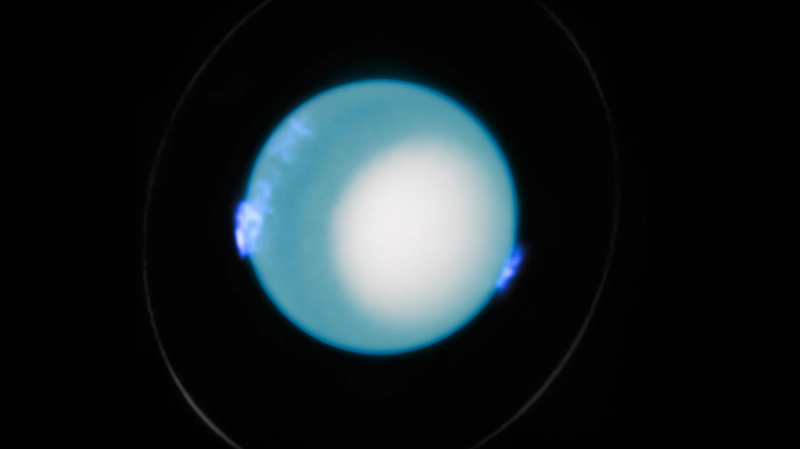Hey space enthusiasts! Did you know that a day on Uranus just got 28 seconds longer? Thanks to a decade of Hubble Space Telescope observations, scientists have measured the planet's rotation at 17 hours, 14 minutes, and 52 seconds – 28 seconds more than earlier estimates from NASA's Voyager 2.
A French-led team, including Laurent Lamy from the Paris Observatory, studied years of aurora data to track Uranus' magnetic poles. This long-term approach not only refines our understanding of the ice giant but could also help pinpoint the rotation of any world with auroras and a magnetosphere. Cool, right? 😊
"The continuous observations from Hubble were crucial," Lamy emphasized. This breakthrough arrives just weeks before the 35th anniversary of Hubble's launch, a reminder of the telescope's lasting impact on our cosmic journey 🚀.
Stay tuned for more exciting updates as we continue to explore the mysteries of our universe!
Reference(s):
cgtn.com




